Are you living in denial? Are you still choosing to stay in an abusive relationship? Here’s how we rationalize abuse inside our minds.
The first time he calls you a “bitch”, you find it a bit uncalled for it. But ‘it’s okay’. It’s not the first time anyone has called you a bitch. So you let it slide this time. Then it starts occurring more often. One quick insult at a time. The voices get louder. The insults get more personal. The pain lasts longer. Your bedroom starts looking more insidious. The threats become more serious.
Then he hits you the very first time. You shiver in shock as your body trembles. Now the terror is real. But you let it slide this time. It’s okay. Maybe you shouldn’t have done that. Maybe you shouldn’t have made him angry. You start thinking how it’s your fault. You realize how much they love you. It’s okay. You keep telling yourself “it’s okay”.
It’s NOT. These are just ways we rationalize abuse. You ARE in an abusive relationship. Can’t you see that yet?
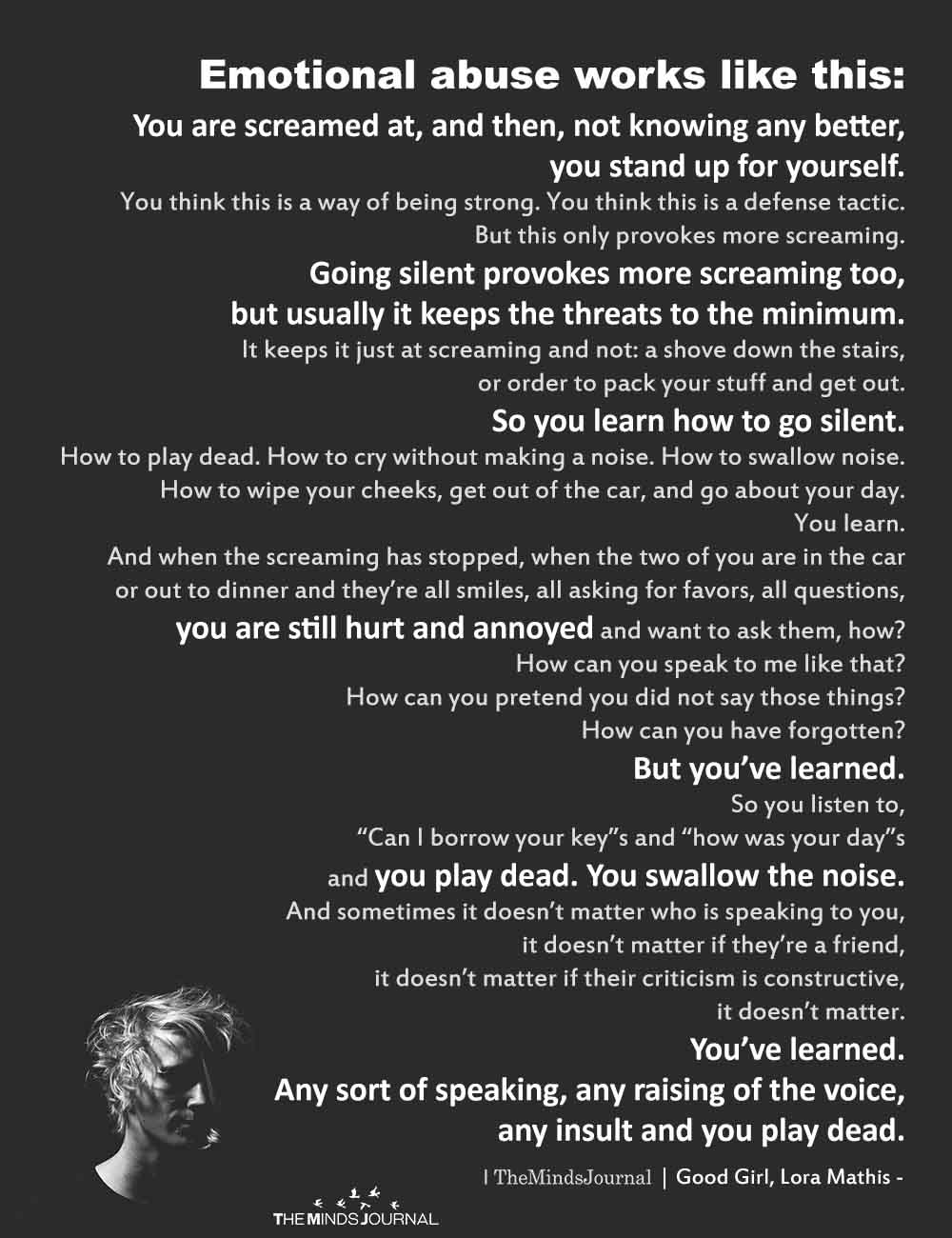
The stories we tell ourselves.
I love him.
And I know he loves me too.
It just got a bit out of hand this time.
I know him. This is not like him. Deep down he is a really good person.
If I didn’t do that thing, he wouldn’t have behaved this way. I know him. He loves me so much.
I can’t leave him just cause we fight. Everyone does. He needs me. He needs me to love him.
These things happen in a relationship. We can work through it. We always make it work. Things will get better.
I just know.
Related: 4 Hidden Truths of an Emotionally Abusive Relationship
No. You don’t. If you can’t see the pattern yet, you never will. Wake up and smell the coffee. Wake up from abuse. Studies consider domestic violence as abusive behavior patterns including physical, sexual, and psychological maltreatment in an intimate relationship used by one partner to “gain power unfairly or maintain that person’s misuse of power, control, and authority” on the other. {1} The truth is anyone can be abused, men and women both. Although we tend to think that the abused are weak, it’s not necessarily true. It is not about if you are weak or strong. It’s about the story you tell yourself.
Yes, the abusive partner will make several excuses to rationalize their behavior. But when you start making excuses to rationalize their behavior…that’s where the problem begins. And the fact is there are many ways we rationalize abuse and justify their actions.
Yes. They will seem like the best person on earth when they ‘act’ normal. Everyone will tell you how lucky you are to have them. Others will want to be with them. It’s just their natural charm and charisma. But that’s not their truth. You have seen their truth inside your bedroom when they hit you last week. But you will ignore that.
Won’t you? You will choose to stay this time too. Won’t you?
Why can’t we just walk out the door?
Why do we choose to stay? Because we are afraid. Not of being called a bitch again. Not of getting punched one more time or losing our self-esteem or our sense of pride. We are afraid to be alone. We are afraid if they leave us, no one will ever love us ever again.
Why? Cause we left our partner at their worst. What kind of person are we then? A selfish bitch who only wants the good things in life? Who ran away at the first sign of trouble? No. Not you. You choose to stay. You choose to ‘fix’ this relationship. Cause that’s what we do when we are in love. Right?
Admitting that you are in an abusive relationship can be very difficult. It is never easy to realize those small fights you have every day are not something ‘small’. When you start tolerating the small things, it leads to bigger things which leads to domestic abuse and violence. And by this time, you are already used to it. It becomes ‘normal’ for you to tolerate abuse. But it shouldn’t. When the person you love the most starts abusing you chronically, it can result in lifelong trauma.
Abuse creates deep lasting wounds that not only affect your future relationships but the future you as well. It’s never ‘okay’ to tolerate abuse. However, leaving an abusive relationship may be a bit more complicated than we believe. According to a 2015 study, stay/leave decisions in abusive intimate relationships are strongly influenced by “more subjectively experienced features of the relationship – both positive and negative.” {2}
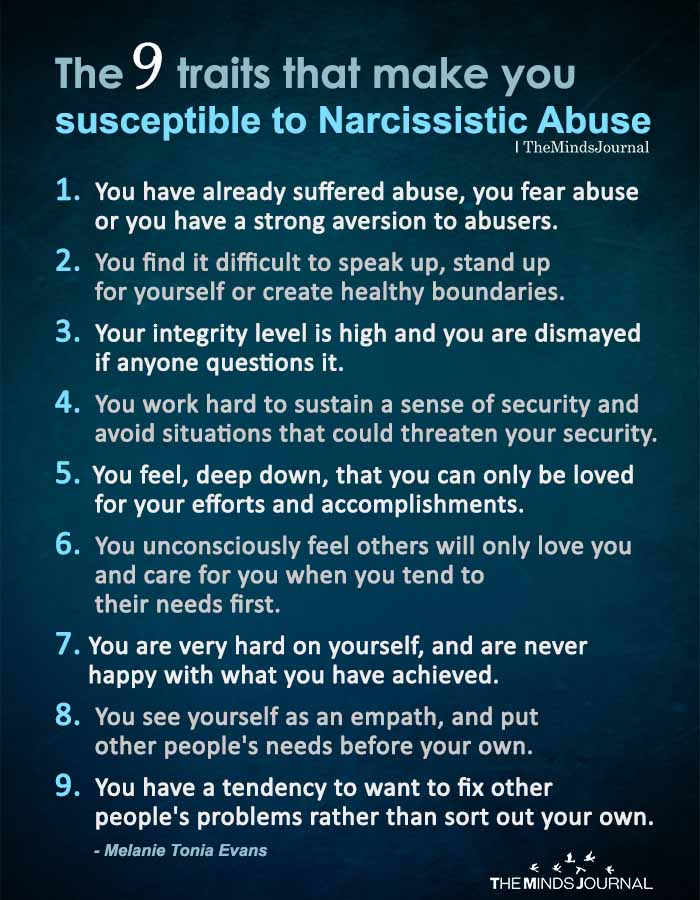
Attachment is an addiction, not attraction.
Wanting to be in a relationship with a person who is clearly toxic and dangerous for your well-being is not love or attraction. It is simply co-dependency and love addiction.{3} Both of which are unhealthy for your emotional and mental state. We start feeling a certain high when we are with our partners. It’s like a drug. Deep inside we believe once everything calms down, we will simply reset to normal. So we accept.
We accept all the physical, emotional, verbal, and sexual violations they can come up with. As long as things get back to normal, as long as we get that ‘high’ from being with them, everything will be fine.
Related: Living with Abuse: Why Didn’t I Ask for Help
Most abused partners tend to show signs of Anxious Preoccupied Attachment styles {4} in their relationships. We feel desperate to develop a relationship that mostly exists inside our minds. Driven by emotional hunger, we tend to want our partner to complete us. Instead of experiencing genuine love, we hold on to a distorted concept of love that only results in us becoming insecure, anxious, needy, and desperate.
The more we try to cling on to our abusive partners, the more abusive they become. The more we tolerate. This in turn constantly hits our self-esteem until it diminishes to a point where our sense of self-worth is completely dependent on our partner. We may even feel that abuse is their way of expressing the passion they feel for us. Why would anyone behave so obsessively if they didn’t love me? We feel scared that if we don’t let them vent their anger, they will leave us and find someone else to be with, to express themselves.
This is why we rationalize and endure abuse.
Yes, there are many ways we rationalize abuse inside our minds. But there are many reasons for it too. Here’s why.
- Abuse results in distorted thoughts. If you believe you triggered him or you deserved it or that it’s not as bad as it sounds, then you are simply not thinking right. Abuse is traumatizing and can make you confused, doubt yourself, feel guilt, despair, and self-blame.
- We all feel social pressure to build a perfect relationship, especially in this age of social networking. Social norms force us to cultivate a ride-or-die mentality where we feel the need to stick to it till the end. So we may not even realize we are in an abusive relationship.
- Abuse destroys our self-esteem. With damaged self-worth, we feel that we are worthless and feel a strong sense of guilt. Thus making it harder to leave and start fresh.
- After the abuse comes to the makeup phase. Once the violence has stopped and the screams have died down, the abuser makes you feel special again by apologizing and doing something nice. The promise of a better future leads to false hopes in our hearts.
- We don’t want to be left alone. As your abusive partner will often isolate you from your family and friends, you feel lonely and afraid. It feels as if we lose them, no one will ever love us again.
- Life can be complicated. When you are in an abusive marriage or have children together and share finances, it might not be as easy to leave, even though you want to.
- We believe that things can change. Love can tame the wildest beast. Maybe. But not an abusive narcissist. Believing that our partner will change sooner or later if we stick with them can make us tolerate the worst abuse one more day.
Stop living in denial.
Related: How To Leave A Narcissist Or Abuser
By denying the truth and downplaying the impact of the abuse and trauma we try to survive a bitter, toxic, and even dangerous relationship. When you start blaming your own self for your partner’s behavior, you know you are in hostile territory. STOP! You don’t have to tolerate this. You don’t have to be in love with them anymore.
Stop living a lie. Accept the truth no matter how much it hurts.
Do NOT rationalize abuse. It’s NOT your fault. You couldn’t have done things better. What you are going through is simply a response to surviving serious emotional and psychological trauma.
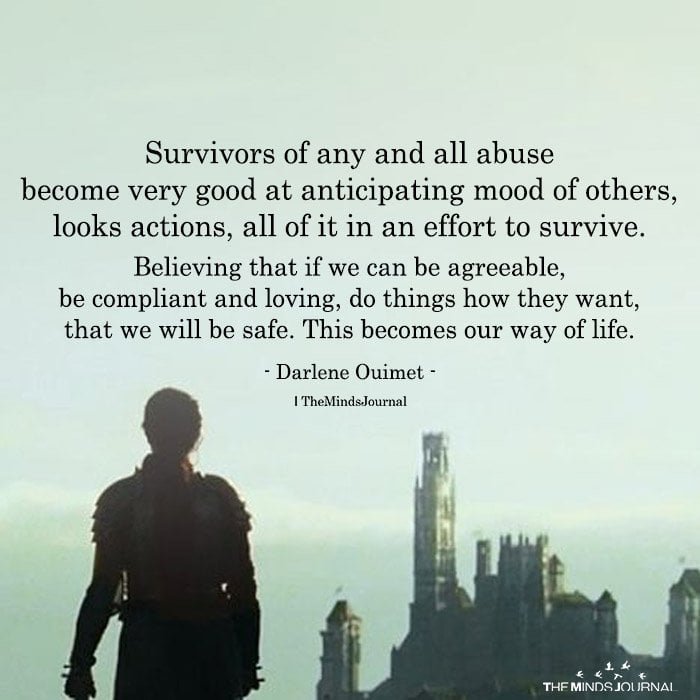
Here are ways we rationalize abuse and justify the abusive behavior of our partner.

1. You believe you are not perfect.
First of all, you don’t have to be perfect to be loved and respected. There are plenty of people out there who are far from perfect yet they are in a loving and happy relationship. When you love and respect your partner, there is no reason in the world that can justify emotional, verbal or physical abuse in any way, despite how much you are flawed.
Your abuser will try their best to make you believe that it’s all your fault. That you provoked them. That you always keep doing the same mistake. This is a strategy to make you feel insecure and weak. Don’t believe it.
We are not designed to be perfect. We are designed to be humane.
If your partner can’t accept the way you are, then it’s not your fault.
Related: 7 Things That Look Like Love But Are Actually Emotional Abuse
2. They are just stressed and frustrated.
Yeah well, so is everybody else. You don’t let every person you know abuse you. Do you? Okay. Consider this. Do you lash out at your partner every single time you are stressed? Does your partner abuse their coworkers, friends, or strangers when they are frustrated? Do they risk losing their reputation by displaying their uncontrollable anger in public? NO.
They just take out all their anger and frustration only on you in the privacy of your room. Narcissistic abusers{5} are very selective about who they make their physical and emotional punching bag. Only when you are completely invested in your partner, they will reveal their true self to you. Psychologically, a victim often feels bonded to the abuser. Ever heard of Stockholm syndrome? {6} It may not be that extreme, but you get the point.
Its okay to get angry occasionally. That’s not abuse. But when they use their frustrations as an excuse to abuse you and make you feel traumatized, you need to put a stop to it. The excuse of stress is one of the many ways we rationalize abuse.
3. They are normal again. It will get better now.
It’s all an ‘act’. This is one of the most common ways we rationalize abuse. We are just lying to ourselves. An abusive partner who lacks empathy will never be able to own up to their actions. They may apologize superficially but they will not take any effort to change themselves. It’s one thing to lose your temper once in a while. But when they start to demean, manipulate, criticize and dominate you all the time, then it’s downright unacceptable.
Their kind, charming, romantic, and sweet persona which attracted you in the first place is not who they truly are deep down. They are simply hurtful and unpredictable that will rob you of your self-esteem and make you more insecure about yourself. The abuser will shift between being sweet and mean so that you fall for their tricks every time. You can’t get tricked by this ‘Jekyll and Hyde’ game they play with you. This constant cycle of the emotional switch will make you seek validation and get you hooked on a biochemical and traumatic level.
4. They came back to you after you left. They still love you.
It’s not about emotions. It’s all about ego. There is no love in an abusive relationship.
Once you have left them and set certain boundaries, it becomes a challenge for them to win you back. They cannot accept rejection or defeat. An abusive ex, whether narcissistic or not, will reconnect with you after the break-up to feel that sense of achievement, pleasure, and convenience. They need to feed their ego. They don’t really miss you or want you back.
This is called Hoovering. Just like the Hoover vacuum, your abusive ex will try their best to ‘suck’ you back to the traumatic and violent relationship. This allows them to gain dominance over you once again and re-establish the status quo of your relationship. Realize that this is just another manipulation strategy.
Related: How To Identify An Emotional Predator And Leave Them For Good
5. You want to be their savior.
You think you can simply love the hatred out of him. As if he is broken. He needs to be saved. To be fixed. How can you abandon him at his worst when he needs you the most? Even with the purest of intentions to help them or love them with a glaring hope deep in your heart that someday they will change, you can’t change them. You can’t teach them how to love. You can’t ‘fix’ them.
We tend to get attracted to toxic people who we can ‘fix’. It appeals to our nurturing instinct. However, caring about someone and ‘fixing’ their toxic habits are not the same thing. In fact, they don’t even want to get ‘fixed’. Although this ‘fixing’ mindset may give you a purpose in life, in reality, you are simply digging your own grave.
Your abusive partner is not a project for you to work on. By accepting his flaws, you believe you can help him mature and grow up to be a better person. However, what you fail to realize is that you don’t have the necessary control or power in the relationship to fix them. The certain failure of your purpose will boomerang back to hit your self-esteem.
6. You deserve it because you reacted to their abusive behavior.
There is no such thing as mutual abuse. There is always an abuser and a victim. When you are abused, you are bound to feel anger, pain, and a whole range of mixed emotions. You are bound to react to abuse. Human beings react to different triggers differently. So if you are being insulted and mistreated repeatedly, you may talk back trying to protect yourself after a period of enduring the abuse.
Such emotions are a clear sign that something in your relationship is out of place. Your partner’s abusive and dysfunctional behavior will severely affect your life, thoughts, identity, goals and beliefs. You will lose your confidence and your sense of self-esteem. So if you feel anger or talk back at your abusive partner, it is only a normal reaction. Not provocation. Surviving chronic trauma will leave a lasting impact on your psyche and your emotional & mental well-being.
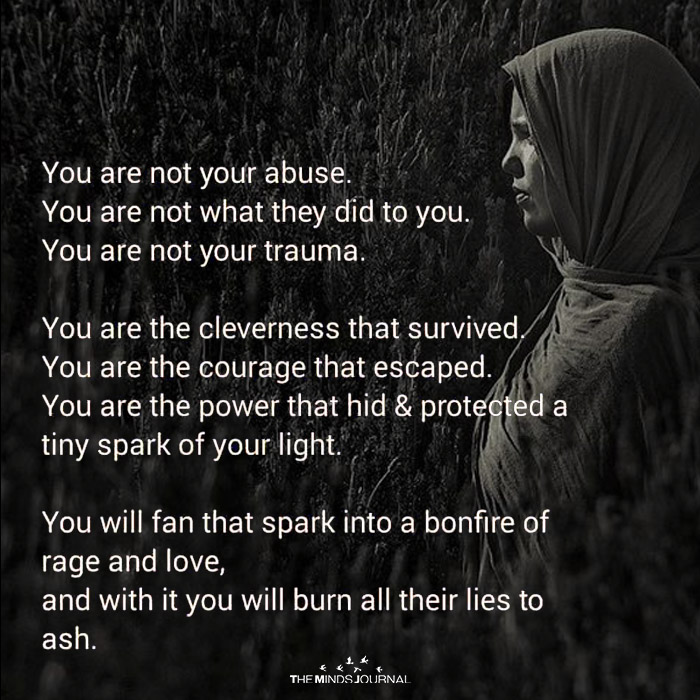
When you are stuck in an abusive relationship, it becomes imperative that you identify the pattern, stop blaming yourself, leave your abusive partner, create a safe environment for yourself and finally emotionally detach yourself from them.
It’s never your fault. Stop blaming yourself!
References: 1. https://www.ncbi.nlm.nih.gov/pmc/articles/PMC4768593/ 2. https://www.ncbi.nlm.nih.gov/pmc/articles/PMC4666798/ 3. https://www.ncbi.nlm.nih.gov/pmc/articles/PMC5378292/ 4. https://www.ncbi.nlm.nih.gov/pmc/articles/PMC4845754/ 5. https://pubmed.ncbi.nlm.nih.gov/31140886/ 6.https://pubmed.ncbi.nlm.nih.gov/3662732/#:~:text=The%20Stockholm%20Syndrome%20seems%20to,the%20siege%20environment%2C%20against%20outsiders.
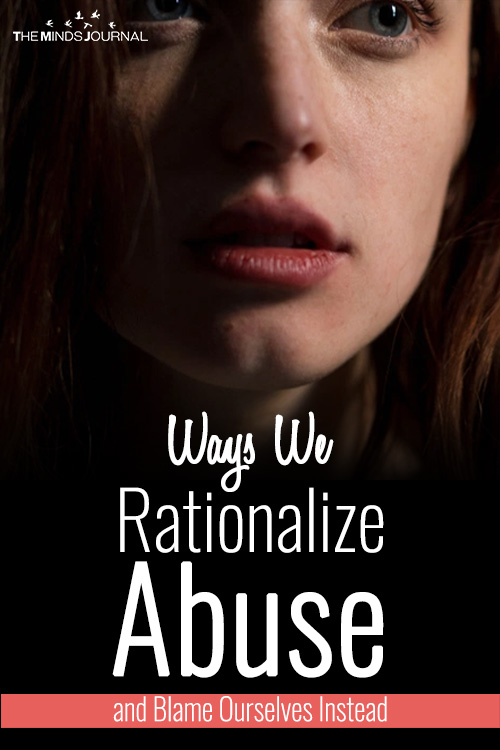
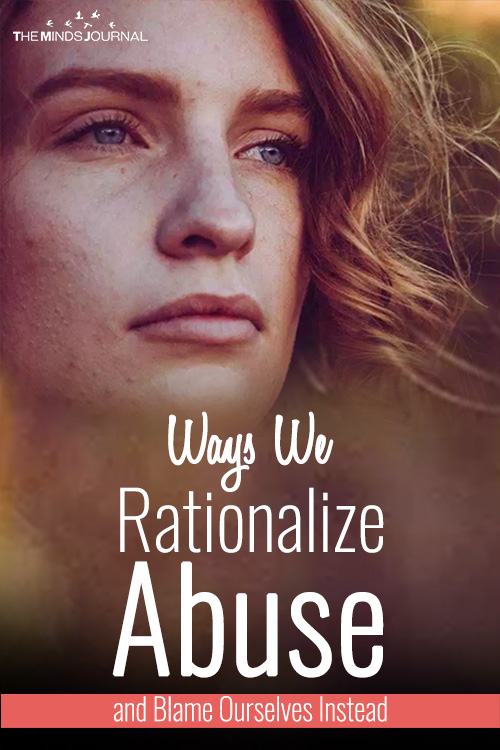



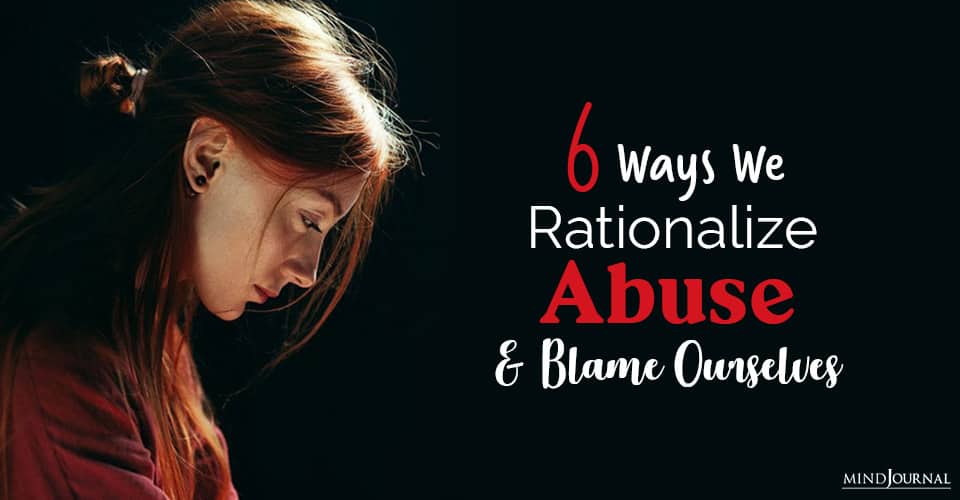







Leave a Reply